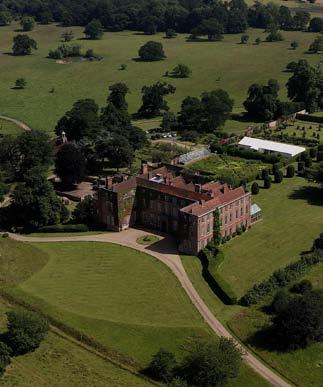
7 minute read
about town
from aboutfram issue 25
by aboutmedia
about town

Advertisement
Going the extra mile
Glemham Hall has been recognised as going the ‘extra mile’ for their couples during the pandemic, having had to manage countless postponements, all whilst furloughing 70% of their staff and managing the same significant overheads. Olivia Riddiford, founder of the campaign, “Glemham Hall has gone above and beyond for their clients by offering postponement & even back-up dates, they’ve maintained their clients’ excitement with thoughtful, considerate posts on social media and delivered beautiful personalised cards on days when couples should have been holding their wedding.” Donna Stockley, Events Manager,“We are thrilled to have been recognised as an ‘extra mile’ venue. Our clients mean the world to us and we are so glad to have been able to support them during this unusual time.”
www.glemhamhall.co.uk
Con Club reopens its doors as 10 Church St…
…with The Common Room cafe due to open in early August and the exhibition space having its first show of work mid-August. FAYAP (Framlingham Area Youth Action Partnership) aims to take occupancy in the old saloon bar in early September and most of the studios have potential residents: a painter, sculptor, jeweller, photographer, graphic designer, web designer and art therapist amongst them. All in all, a gentle opening, but hopefully the there will be a party in the not too distant future. Watch this space.
www.instagram.com/exconclub/
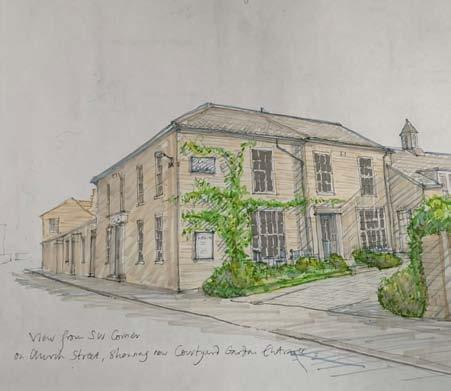
Ripening in old age
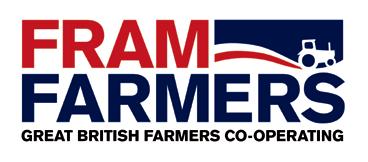
This year Fram Farmers are proud to be celebrating their 60th anniversary, one of the few true farmer-owned cooperatives to have reached this milestone.
about about interiors town
Curtain call

Last summer, Natalie Canning, owner of Eye based company Natalie Canning Interiors, was contacted ‘out of the blue’ by set decorator, Tanya Bowd – winner of the Royal Television Society Awards for ‘Victoria’ with Helen Mirren – to create elaborate curtains, pelmets and bed canopies for a C18 Russian Palace film set for ‘The Great’, with Elle Fanning as Catherine the Great. As Natalie says, “The next few months were a complete whirlwind with technical drawings, ever-changing measurements and last-minute extras the order of the day. The process was an education into a whole new world and although it took a few weeks to recover, I would love to do something like that again.” In 1960, a group of 23 farming founders had the foresight to recognise the benefits that farmers could achieve by pooling their purchasing power. Six decades later, Fram Farmers represents almost 1400 farming businesses across the UK and its original concept is even more relevant, with numbers joining the co-op growing, year on year, as the ‘landscape’ within the farming industry continues to evolve.
www.nataliecanning.co.uk
Keeping it in the family
Having been through the toughest three months in its 28-year history, Ufford Park Hotel, Golf and Spa has been named Family Business of the Year at a virtual ceremony hosted at the Family Business United Awards 2020. Tarnia Robertson, Managing Director and former pupil at Framlingham College, said the award was a huge boost at a time when they needed it most. “The last three months have been the toughest we have ever experienced. This is the first time in the last three decades that we have had to stop trading and close the doors to customers and members.”
www.uffordpark.co.uk

about the land
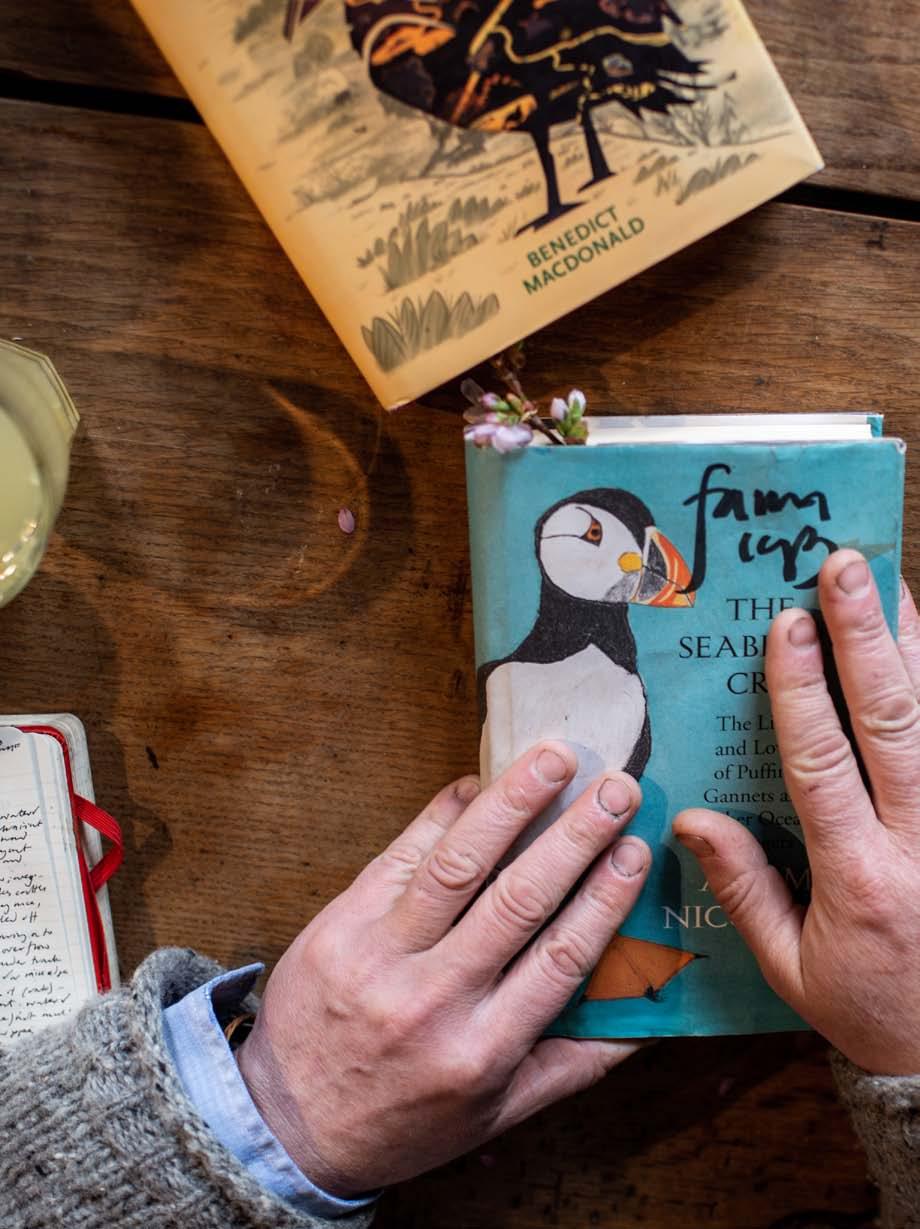
Born to be wild
about the land
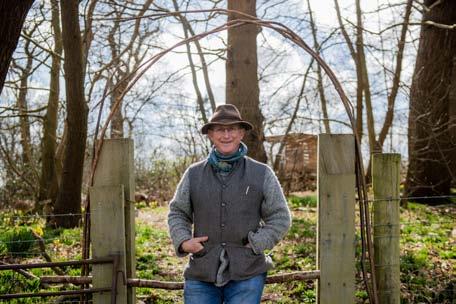

Back in March, we visited some exciting rewilding projects that are closely intertwined with the theme of this year’s Alde Valley Spring Festival. Due to lockdown, the festival has been extended until the end of August, going online with a virtual exhibition, but it is amazing to see how swiftly the rewilding has become a reality.
Jason Gathorne-Hardy, founder of the festival and custodian of White House Farm, Great Glemham, has his roots deeply embedded in the soil of the Upper Alde, and for generations his family have been at the forefront of rural conservation in Suffolk. His grandfather was a founding member of the Wildlife Trust and Jason’s blood runs thick with this same love of nature and passion for preservation. Back in 2009, he developed a farm enrichment plan and entered his 220 acres into a 10-year Higher Level Stewardship scheme that included projects such as restoring and expanding hedgerows, restoring ditches and dykes, managing low input grassland and planting new woodland and winter bird seed patches. The farm has always been at the heart of the Spring Festival and many visitors will be familiar with these projects, witnessing first-hand the positive impact they are having on the natural environment.
This year, Jason decided that the focus of the festival should be on resident and visiting birdlife, and the theme for artists
about the land

taking part was ‘On a Turning Wing - A Celebration of Birds, Flight and Migration’. His aim was to start re-establishing important ecosystems on the farm that will aid the recovery of pinnacle species such as nightingale, snipe, lapwing and hobby. When I visited in March, the dining room table was strewn with inspiration: collected feathers; a nest of leaves; discarded antlers; charcoal sketches and piles of books bearing titles such as ‘The Tranquil Gardener’, ‘The Seabird’s Cry’ and ‘Miraculous Abundance’; important passages marked by a downturned page or a sprig of pressed cherry blossom. Jason has also followed with interest the progress of the impressive rewilding projects at the Knepp Estate, West Sussex, where the turtle dove has made a remarkable comeback in a dramatically short space of time, and he is part of the Wildeast pledge to restore nature across East Anglia on a grand scale.
At White House Farm, Jason and his team has started on three rebirding projects to enrich and restore the local habitats. The first of these is the creation of a series of lakes in his water meadows above the River Alde. Initial testing two years ago showed that the land would retain water, and after taking advice from the Suffolk Wildlife Trust, Natural England and the Environment Agency, Dave Rose and his digger got to work. Back in early spring, the soil was freshly turned, uncovering a layer of peat about a foot below the surface that Jason hoped would act as sponge and help keep the water levels high. So far this has indeed been the case, with water weeds and reedbeds starting to take hold
about the land


and moorhen, herons, swallows and ducks visiting – even a plover putting in an appearance - and it would be amazing to see white egrets and spoonbills feeding along the shallows one day.
The second project was to clear a 1.5 acre site within part of the woodland to allow sunlight in. Evidence suggests that closed canopy woodland is not as beneficial for the ecosystem as having a series of small clearings, and Jason hopes that the work, managed by Hunts Tree Surgery, will see a rise in the diversity of bird species. The last project is a wildflower enrichment programme that Jason has worked on with advice from Charlie and Jack Steed. Teasel, yarrow and oxeye daisy seedlings were transplanted by hand from other parts of the farm, hazels sticks being used to mark key species, but by next year I suspect

these will be lost amongst the grasses, billowing cow parsley and an abundance of wildflowers, so important for our insects and birdlife.
Every spring Jason opens his farm gates to celebrate the importance of food, farming and the landscape, and the artwork at this year’s festival is a wonderful reflection of his vision for recovery and restored vibrancy. These may be unusual times but perhaps, now more than ever, we can finally understand the importance of nature. I feel we are on the brink of a pioneering wildlife revolution, and along with Jason, believe that now is the time to make a commitment to restore the balance… before it is too late.






